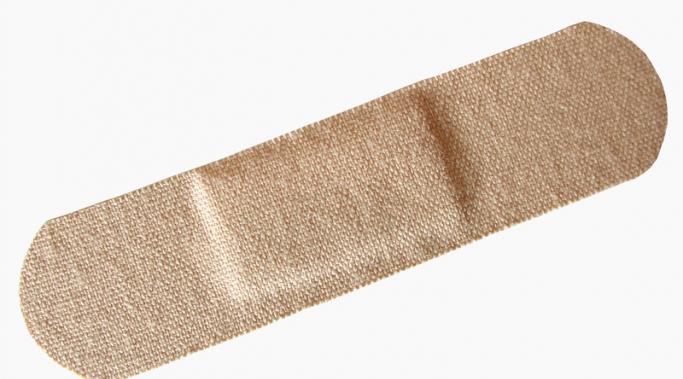I’ve been working on coming up with mission and vision statements for a charity I work with, and one of the things that a fellow board member said was that we want to end self-discrimination. I thought this was quite brilliant, and, of course, quite true. One of the things people with a mental illness face isn’t just discrimination from others but discrimination and stigma from themselves. And if we want to fight discrimination and stigma in the world, this begins by looking in the mirror.
Coping
Being sick, I think with anything, can be extremely isolating. Being sick, you’re not “like everyone else.” Be it cancer, HIV, diabetes or bipolar disorder, there is a moment when you realize that you’re different and that difference is isolating.
This is a form of internal isolation. But, of course, isolation can be external every bit as much as it can be internal. And sadly, most people with bipolar disorder experience heaps of both.
Recently I was turned on to one of the coolest apps I’ve seen – it’s an app for your smartphone that tracks your sleep. This magical piece of software records your sleep, the sleep phases and any sounds, as well as does a myriad of other things.
This is incredibly useful to a person with a mental illness. People with mental illnesses like depression and bipolar disorder are known to have problems with their sleep and this application can help you pinpoint what’s going on.
I have had a lot of bad bipolar days in my life. Days when I was incapacitated. Days when I couldn’t make food for myself. Days when I couldn’t work. Days when I couldn’t talk to anyone. Days when I just couldn’t function.
On these days, I’m sick. And in some regards, it’s a type of sickness that is like many others. I feel like trash, I don’t want to move from the couch and everything hurts – that could describe a cold or the flu as well. But as it happens, it also described a bad day for depression or bipolar disorder.
But here’s the thing, when someone calls and asks if I want to have coffee, saying I’m too depressed isn’t seen as acceptable. That’s seen as weakness. That’s seen as something wrong with me. Whereas, if I said I was sick with a cold, that would be alright, because, after all, everyone gets colds and when they get them, it’s okay not to feel like socializing.
And I can’t tell you the number of days I’ve said I was sick with the flu, or a cold, or a stomach bug or anything but sick with bipolar. But really, that’s what I am.
Even amongst people with bipolar disorder, the disorder is highly contested. People argue about what it’s “really” like to have bipolar disorder. What mania is like. What depression is like. And perhaps most hotly debated of all is what the appropriate treatment of the symptoms is – antipsychotics, mood stabilizers, antidepressants, psychotherapies, alternative treatments and so on. People argue about virtually everything.
And one of the reasons why this is the case is because the experience of bipolar disorder is so vastly different. Some people experience manic psychosis, others do not. Some people experience delusional depression, others do not. Some people experience suicidality, others do not. And so on. Severity varies as do symptoms.
And I would argue that much of this disagreement stems from the two basic types of bipolar disorder: well-controlled and not well-controlled bipolar disorder.
Bipolar disorder and borderline personality disorder have crossover traits and so a person with bipolar disorder can often mistakenly be diagnosed with borderline personality disorder. In fact, some feel that diagnosis with both disorders is inappropriate unless the patient’s bipolar disorder is in remission.
But some people do meet the diagnostic criteria for bipolar disorder and borderline personality disorder. I would have put this number much lower than it actually is thought to be. From the research I’ve done, it appears that borderline personality disorder is comorbid to bipolar in around 40% of cases. This is particularly surprising as it was once thought that personality disorders were only comorbid to bipolar in 12% of cases or less.
But what is borderline personality disorder and what does it mean if you’re diagnosed with both bipolar and borderline personality disorder?
It is an unfortunate reality that some people with bipolar disorder refuse help. And it is an unfortunate reality that this deleteriously affects those in their lives. And it is unfortunate that some people are tied to those that refuse help, such as in the case of a marriage or partnership. So the question is, if you are married to a person with bipolar who refuses to get help for their illness, should you leave them?
A normal life is something I’m not very familiar with. I’ve never really had one. From the time I was a kid with an alcoholic father, to the teenage years I spent depressed, to my adult years dealing with psychiatrists, symptoms and medication side effects, I’ve never really enjoyed anything termed normalcy.
But the question is, does anyone with bipolar enjoy a normal life?
In the presentation I give to schoolchildren, I mention that, at various points in my history, I self-harmed. I cut myself. It’s a dirty truth, but there it is.
And not surprisingly, one teen asked me today, “Why would anyone cut themselves?”
Good question. Whole books have been written exploring this question and there is no single answer to why people self-harm. However, as to why most self-harm: it seemed like a good idea at the time.
Bipolar places limitations on our lives. It might be the fact that we can’t go out and enjoy a cocktail after work or it might be the fact that we can’t stay out all night. Or it might be the fact that we can’t work full time or that we have to live with medication side effects that make us sick. Limitations are there, no matter how you look at it.
But what happens when you don’t respect those limits? What happens when you choose to ignore them?
I can tell you. You feel like a dog’s breakfast. Just ask me. I did it on Monday.



![MC900441394[1]](/sites/default/files/styles/blog_listing/public/uploads/2013/08/MC9004413941.png?itok=UHwwmyXi)




